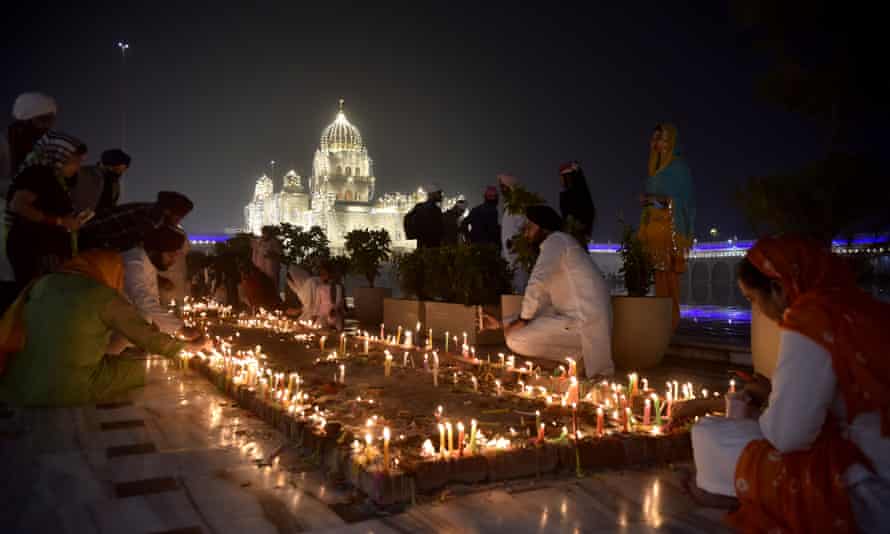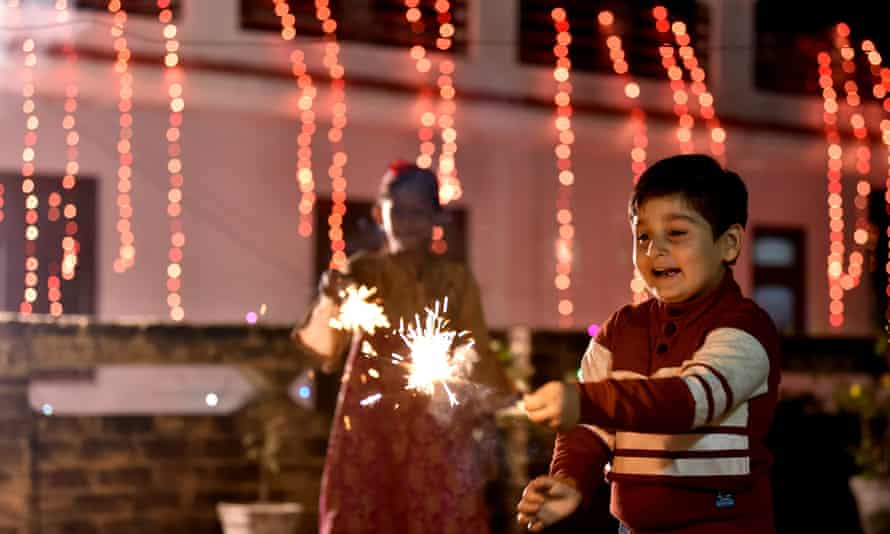
It is the festival that celebrates the triumph of light over darkness, and this year Diwali held a special significance for India as it got back into full swing for the first time since the coronavirus pandemic began.
Oil lamps lit up windows, shops, homes and monuments across the capital, Delhi, and devotees gathered at temples and shrines, as excitement over the festival, severely dampened last year by Covid-19, gripped the country once more.

In the holy city of Ayodhya in the state of Uttar Pradesh, 900,000 earthen lamps were lit on the banks of the Sarayu River as dusk fell on Wednesday. Hindus believe the city is the birthplace of the god Ram. In Amritsar, the Sikh Golden temple was enveloped in fairy lights.
In accordance with longstanding tradition to mark the festival, the armies of India and Pakistan exchanged sweets at the Tithwal crossing bridge on the Line of Control that divides the Indian and Pakistani parts of Kashmir.
The Hindu festival represents new beginnings, but for many across India who lost their relatives and loved ones in the devastating Covid-19 second wave that swept through India in April it was the first Diwali without family members.
In Delhi, Shriya Chatterjee, 42, said the festival would not feel the same without her mother, who died in April from the virus. “My mum loved Diwali,” she said. “She had all these traditions she would make us do every year and would boss us all around to make sure everything was perfect. It would drive me crazy but now this year I’m making sure we celebrate as she would have. But I’ve avoided parties and we are keeping it small, to be cautious because we know that Covid hasn’t gone away.”

Even though coronavirus cases in India are currently at some of their lowest levels since the pandemic began, with just over 12,000 new cases reported per day, zero Covid deaths in Delhi and the lowest active caseload in more than 250 days, there were concerns that complacency during the festival could lead to a new rise in cases, or even set in motion India’s third wave.
In an address, India’s prime minister, Narendra Modi, had urged people to take precautions during the celebrations and to be wary of Covid. However, Diwali parties were in full swing across Delhi in the days leading up to the festival, and markets in the capital and across the country were crammed with people squashed together, with little room for Covid precautions to be observed.
For Delhi residents, the morning of Diwali also brought with it the annual spectre of pollution, as air quality hit hazardous levels and a thick brown smog shrouded India’s capital. Levels of PM2.5 – the smallest and most harmful particles polluting the air – peaked at an average of 389 on Thursday. The figure is more than 15 times higher than the safe limits set by the World Health Organization.
Though polluting firecrackers were banned, and police seized four tonnes of them the night before Diwali, they could still be heard erupting across the city as night fell.


